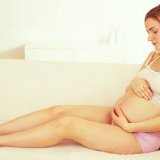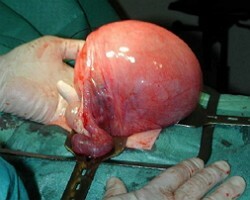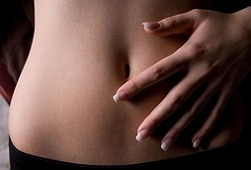Hormonal changes in women

Violation of the hormonal background is often the main cause of gynecological diseases in women. Hormonal failure is due to many reasons. Hormonal changes occur in women quite often and can be at any age.
Causes of hormonal disorders in women
These include not only age, but also stress. Hormonal changes can be genetically conditioned. In such cases, menstruation may not begin at all( primary amenorrhea).May lead to hormonal failure and transferred infections, including STI.If in childhood, a woman often had ARD or sore throats, this is exactly what can be the cause. Weakened by stress, overfatigue, constant illnesses and malnutrition, immunity also causes hormonal disorders in women. One of the primary causes of gynecological hormone-related diseases are diseases of the endocrine system. Thyroid dysfunction also leads to hormonal disorders and may contribute to the development of various diseases( benign tumor may cause - adenoma).Surgery performed in the peritoneal and genital area leads quite often to the development of reproductive system diseases in women. Abortions( associated with curettage of the uterus) are the most common cause of hormonal diseases that can lead to infertility.
Hormones and pregnancy
Hormones play an important role during pregnancy and before menstruation. She has hormonal changes. A pregnant woman has a high estrogen level, and with the onset of the menstrual cycle, the estrogen level falls, and the woman's body returns to its normal state. If a pregnant woman has a deficiency of hormones in the body, then this can lead to an incorrect development of the fetus. For example, if there is a lack of iodine in the body, the thyroid gland begins to produce an inadequate amount of the hormone of thyroxine. As a result of the lack of this hormone, the future child begins to develop cretinism. The mental and emotional state of a pregnant woman is affected by various hormones. For example, progesterone enhances its effect for childbirth and soothes the psyche of women, prolactin forms the maternal instinct and stimulates the growth of mammary glands( milk production), human chorionic gonadotropin is a wonderful and an uncertain feeling of "I'm pregnant", estrogen awakens ancient instincts( nest instinct, excitement and concernAbout the child), and endorphin( a hormone of happiness) is responsible for the emotional state.
Hormonal changes in adulthood
in a woman's life there comes a certain period( menopause) occurs when hormonal disorders. The function of the ovaries gradually fades. In women, the menstrual cycle stops. In the same period, the reproductive function ends. The body gradually ceases to produce female sex hormones, and this in turn leads to disruption of the work of all organs. After 40 years of age, the woman may show early signs of menopause. During this period, the woman feels low tides and tides - she throws it in the cold, then in a fever. In addition, menopause in women may be associated with nervous system disorders, dizziness, chronic fatigue, insomnia. Due to a lack of female hormones in the body, various diseases of the genitourinary system in women, heart disease and diabetes can develop.
Things to remember
The main features of the hormonal disorder in women include: frequent depression, menstrual irregularities, weight gain, fatigue, increase in the body of excess hair, or hair loss, pressure surges, insomnia, frequent headaches, breast tenderness, decreasedSex drive. If you recognize the signs of hormonal dysfunction in time and immediately consult a doctor, the specialist will help you to start treatment in time.
It is quite difficult to diagnose the diseases of the female reproductive system, which are caused by hormonal changes. For this, the most advanced diagnostic methods are being used: ultrasound, laparoscopy, hysteroscopy, blood test for hormones.



